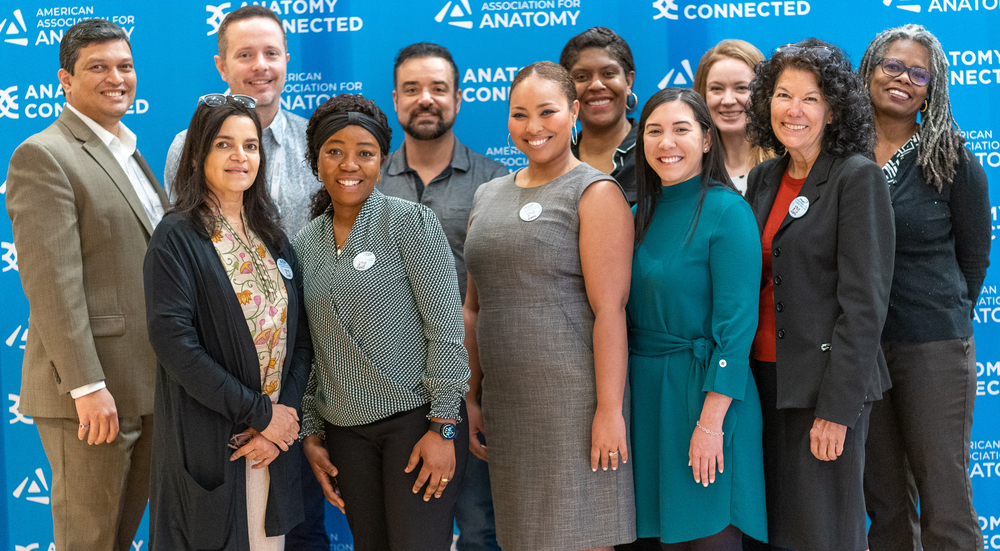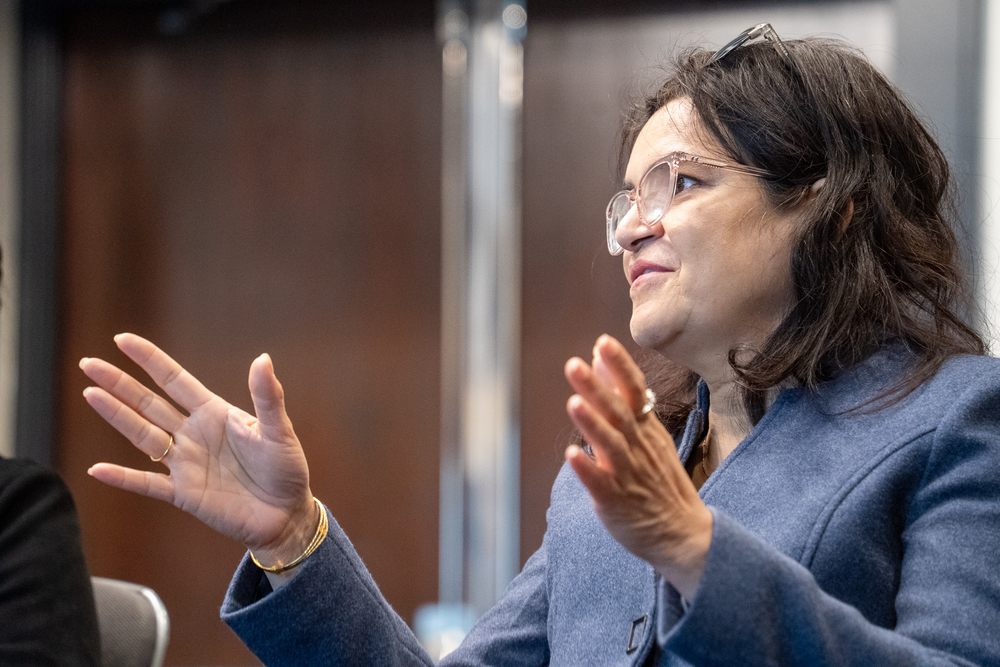
A group of OUWB professors and staff recently created and delivered part of a national program aimed at increased retention of underrepresented minority faculty involved with teaching and research of anatomical science.
The Anatomy Scholars Program (ASP) was developed for the American Association for Anatomy. The curriculum for ASP consists of seven modules delivered over the course of two years.
A team of eight OUWB faculty and staff created a part of the curriculum for the “teaching and mentoring” module that included topics such as team-based learning, effective use of technology, assessment and promotion of inclusive teaching.
The team was led by Malli Barremkala, M.D., associate professor, Department of Foundational Medical Studies.
“I'm extremely proud of Dr. Barremkala for his leadership role in this endeavor and for his choice to involve so many of his colleagues,” said Doug Gould, Ph.D., chair, Department of Foundational Medical Studies.
“This type of collaborative behavior sets a standard for others to emulate,” added Gould.
‘Definitely see a need’
 |
| Varna Taranikanti, M.D., associate professor, Department of Foundational Medical Studies, served as a mentor for ASP. |
In addition to his role at OUWB, Barremkala is chair of the AAA diversity, equity, and inclusion committee.
When AAA officials sought to develop a program aimed at increased retention of underrepresented minority faculty who are involved with teaching and research of anatomical science, Barremkala said he jumped at the opportunity.
“If this program was available to me when I started on faculty at OUWB, I would have signed up,” he said. “I definitely see a need for this program.”
In addition to seeing a general need for ASP, Barremkala noted that the program aligns with AAA’s vision for promoting DEI.
Another motivating factor, he said, is that OUWB’s mission strongly aligns with what AAA aims to do with the program.
Barremkala said that is evident in the fact that when he reached out to OUWB faculty for help in developing curriculum for the teaching and mentoring module, “every single one of them participated.”
The teaching and mentoring module is one of seven. Others include work-life balance, communication, professional development, service, and funding. Each module consists of several parts.
For example, the work-life balance module helps participants better understand one-on-one coaching, the pros of “saying yes to opportunities,” and also includes workshops on the topic.
For about 10 months — and in addition to regular duties — the OUWB team developed content for the teaching and mentoring module.
OUWB faculty and staff delivered the sessions earlier this year.
OUWB Associate Professors Sarah Lerchenfeldt, Pharm.D., Suzan Kamel-ElSayed, Ph.D., and Barremkala, presented “How to Deliver an Effective TBL (Team Based Learning).”
Barremkala and Cody Bailey-Crow, instructional designer, gave a session on “How to Teach Effectively with Technology.”
Deirdre Pitts, Ph.D., associate dean, Faculty & Staff Affairs and Professional Development, and Tracey Taylor, Ph.D., assistant dean, Diversity & Inclusion, talked about “How to Promote Inclusive Teaching.”
Beyond the content delivered, Gould — who helped with a session called “How to Write Good and Effective Assessment Items,” — said the project could yield other positives for the faculty involved.
“FMS faculty member involvement at this level…may well lead to future scholarly collaborations with faculty members from other institutions, speaking engagements, workshops, and countless other opportunities,” said Gould.
‘A great head start’
Participating scholars must hold a terminal doctoral degree in research (Ph.D., Ed.D., Sc.D., or equivalent), or a professional degree in health sciences at the doctoral level (M.D., DDS, etc.).
Further, they must be academic professionals within five years of starting their first position; a postdoctoral fellow in the last year of their postdoctoral appointment and in search of an academic appointment; or a graduate student in the last year of their doctoral program and in search of an academic appointment.
Applications are currently being accepted for the next cohort of participants.
Barremkala said he’s looking forward to the evolution of the program.
The hope is that the participants eventually become leaders in the field, and will continue to promote inclusivity.
“This program is giving them a great head start,” he added.
Participants in ASP expressed enthusiasm about the program.
“As a member of an underrepresented group, participation in such a program is a great opportunity to advance in our careers and overcome some hurdles we often encounter,” said Andre Luiz Pasqua Tavares, Ph.D., an assistant research professor at The George Washington University.
Caio Sarmento, Ph.D., assistant professor, California State University – Fresno, shared similar thoughts.
“All the aspects and activities of the program are very attractive,” he said. “However, what stands out the most to me is the opportunity to receive mentorship from established scientists, along with the possibility to open a door for future collaborations.”
For more information, contact Andrew Dietderich, marketing writer, OUWB, at [email protected].
To request an interview, visit the OUWB Communications & Marketing webpage.
This work is licensed under a Creative Commons Attribution-NonCommercial 4.0 International License.

